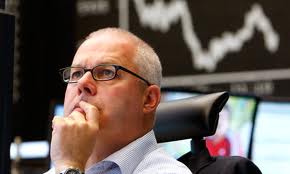
The spectrum of insights that I personally garnered is extremely broad, but I’d like to focus on one recurring theme and a key takeaway that resulted from a discussion with a European manager. We were speaking about the type of people that his firm hires as portfolio managers. He verbalized the following 3 attributes.
The first thing they look for in hiring a portfolio manager is whether an individual has the ability, willingness and discipline to follow the corporate rules, guidelines and methodologies. He felt this was the great divide between individual investors and institutional portfolio managers. The individual investor has only his or her personal motivation to stay disciplined, with the consequence – be it positive or negative – dished out by the markets themselves. From his perspective, this herein was the biggest weakness of the individual investor who often lacks the discipline to consistently apply his or her methodology. An institutional manager’s discipline is taken care of by the corporation. The manager either follows the rules and methodologies or the manager gets fired. Pretty solid motivation to stay the course.
The second attribute he mentioned is that his firm values wisdom over sheer intelligence. He maintained that extremely intelligent people are tempted by their own superior intellect to believe they know best and can “out think” the markets – inevitably, the markets proceed to scorch these types of intellectuals. Their pride deceives them into believing there is a Holy Grail, and they’re certain they’ll discover it. They have trouble accepting the fact that if such a grail indeed existed, some other brilliant mind would have already discovered it.
As he explained, the value of wisdom, on the other hand, is that a wise person is willing to acknowledge a subservient role to a higher power – that power being the markets themselves. By possessing the wisdom of humility, they are better able to have confidence and embrace the fact that the markets are indeed correct. A manager of superior intelligence is less likely to truly believe and embrace the fact of the markets’ behavior and consequently will get tossed about like a sailor on a stormy sea who failed to heed the impending storm clouds.
In other words, he equated humbleness with nimbleness. The fact is that the markets change direction like shifting shadows. To keep a portfolio in the light and harvest its fruits requires that a manager be quick, willing to listen to what the market is saying and then be able to act decisively. With this humility must also come an ability to not get angry at the markets and to not deceive oneself into revenge trading when the markets exact tuition for an ill-timed trade.
The third attribute he said they look for in portfolio managers is the biblical-termed double-minded man. In essence, they want someone with the ability to look into the mirror of his or her life and see his daily self reflected back. Perhaps the individual has a family, plays golf and collects fine wines. Conversely though, when this same person looks into the market mirror, he or she needs to see the reflection of a totally separate person. He needs to see the reflection of a trader who has a completely different set of emotional attributes more appropriate for investing.
This ability to look at one’s own reflection in two distinctive mirrors and accept the differing realities of the two reflections while not letting one vision pollute the other, is both rare and exceptional. More common is a trader who sees his face in the market’s mirror but fails to acknowledge an unflattering image and instead creates a less effective wishful image of himself. This trader tends to give into his need to experience short-term good feelings, but most likely at the cost of longer term profitability.
Similarly, individual investors who selectively forget what they see in the market mirror and try to negotiate their version of reality are fools who are on their way to becoming poorer fools. Deceiving oneself in this way accommodates one’s short-term need for positive feelings at the price of long-term feelings and will more often than not result in a costly deception.
The bottom-line is that truly successful portfolio managers are the “Gods of Wall Street” and as a result are exceptionally compensated for their unique skill set. What individual investors need to take away from this is that it’s not their superior tools or cutting edge methodologies that facilitates their extraordinary performance. These days, their tool kit is not all that different from the one available to us as individual investors. What sets them apart is their unique ability to vaccinate themselves against those human tendencies that naturally percolate to the surface when most of us as individuals attempt to trade the markets.
Trade well; trade with discipline!
-- Gatis Roze
